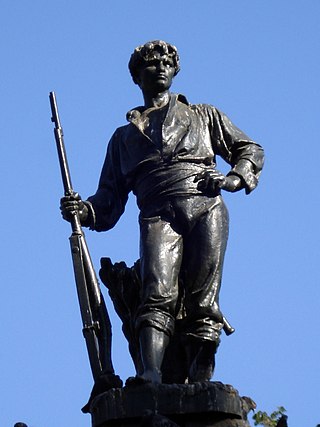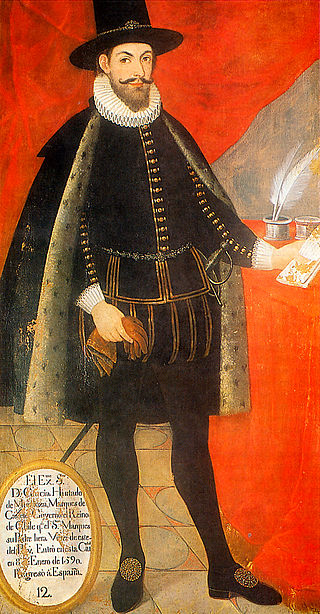The Federación del Rodeo Chileno (Chilean Federation of Rodeo) regulates rodeo events in Chile. Chilean Rodeo, officially the National Sport of Chile.
Originally chartered on January 10, 1962, in Santiago.
The Federación del Rodeo Chileno (Chilean Federation of Rodeo) regulates rodeo events in Chile. Chilean Rodeo, officially the National Sport of Chile.
Originally chartered on January 10, 1962, in Santiago.

Rodeo is a competitive equestrian sport that arose out of the working practices of cattle herding in Spain and Mexico, expanding throughout the Americas and to other nations. It was originally based on the skills required of the working vaqueros and later, cowboys, in what today is the western United States, western Canada, and northern Mexico. Today, it is a sporting event that involves horses and other livestock, designed to test the skill and speed of the cowboys and cowgirls. American-style professional rodeos generally comprise the following events: tie-down roping, team roping, steer wrestling, Steer roping, saddle bronc riding, bareback bronc riding, bull riding and barrel racing. The events are divided into two basic categories: the rough stock events and the timed events. Depending on sanctioning organization and region, other events such as breakaway roping, goat tying, and pole bending may also be a part of some rodeos. The "world's first public cowboy contest" was held on July 4, 1883, in Pecos, Texas, between cattle driver Trav Windham and roper Morg Livingston.

The culture of Chile reflects the population and the geographic isolation of the country in relation to the rest of South America. Since colonial times, the Chilean culture has been a mix of Spanish colonial elements with elements of indigenous culture, as well as that of other immigrant cultures.

Roto, f. rota, is a term used to refer to Chilean people and in particular to the common Chilean. In Chile, from the start of the 20th century, it was applied with a negative classist connotation to poor city-dwellers. It is also used contemptuously in other Spanish-speaking countries, especially Bolivia and Peru, to refer to Chileans in a derogatory manner. Otherwise, despite its defects, the roto is also considered a figure of national identity and pride in Chile.

García Hurtado de Mendoza y Manrique, 5th Marquis of Cañete was a Spanish Governor of Chile, and later Viceroy of Peru. He is often known simply as "Marquis of Cañete". Belonging to an influential family of Spanish noblemen Hurtado de Mendoza successfully fought in the Arauco War during his stay as Governor of Chile. The city of Mendoza is named after him. In his later position as Viceroy of Peru he sponsored Álvaro de Mendaña's transpacific expedition of 1595, who named the Marquesas Islands after him.

The Chilean Corralero or Chilean Criollo is the Chilean national breed of Criollo horse. Like all Criollo horses, it descends from horses brought to the Americas from Spain by the Conquistadors.

The Chilean Primera División is a professional football league, being the highest division of Chilean football league system. It is organized by the ANFP. The league was previously known as the Campeonato AFP PlanVital for sponsorship reasons. In 2023, the ANFP signed a partnership with Betsson Group to become the official naming sponsor of the competition, which became known as Campeonato Betsson.

Rodeo is a traditional equestrian sport in Chile, declared the national sport in 1962.
Ramón Cardemil Moraga was a Chilean rodeo horse rider, considered one of Chile's best rodeo riders of all time. He and Juan Carlos Loaiza are the riders who have won the most titles in the Chilean National Rodeo Championship.
Scouting in Chile is served by several independent organizations:
Higinio Ortúzar Santamaría was a Chilean footballer who made his entire career in Spain.

Tomás Antonio Álvarez de Acevedo Ordaz was a Spanish colonial administrator who twice served as interim Royal Governor of Chile, first in 1780 and again between 1787 and 1788.
Juan Carlos Loaiza MacLeod is a Chilean rodeo horse rider. He won the Chilean National Rodeo Championship in 1987, 1988, 1994, 2000, 2001, 2002 and 2007, equalling the record of seven championship wins set by Ramón Cardemil. In 2009 he was named among the best Chilean riders of the 21st century by the Chilean Rodeo Foundation.

Sports in Chile are performed at both amateur and professional levels, practiced both at home and abroad to develop and improve, or simply represent the country. Football is the most popular sport in Chile, and is played for a range of reasons. However, the country's most successful sport is tennis. In rural areas, Chilean rodeo is the most practiced sport in Chile, which is the national sport. Chile has achieved great international success in other sports, and there have been important figures, however, such exploits are not known to the general population because they are not sports that have been popular throughout the country.

The Liga Nacional de Hockey Chilena is one association of Roller Hockey Clubs in Chile. The Liga Nacional de Hockey Chilena is divided in three tournaments:

The Chile national under-16 and under-17 basketball team is a national basketball team of Chile, administered by the Federación de Basquetbol de Chile.

The Chile women's national under-18 and under-19 basketball team is a national basketball team of Chile, administered by the Federación de Basquetbol de Chile.
Alfonso Bobadilla Rojas is a Chilean equestrian, sport leader and former general of Carabineros de Chile. He competed in the team jumping event at the 1984 Summer Olympics.

Oscar Alex Enrique Schnake Vergara was a Chilean politician and physician. He was a founder member of the Chilean Socialist Party and close to President Pedro Aguirre Cerda (1938–1941).
Josefina Tapia Varas is a Chilean skateboarder and three-time Chilean National Skateboarding Champion in women's park. She competed in the women's park event at the 2020 Summer Olympics in Tokyo.
Héctor Ovidio Parra Cancino was a Chilean football player and manager who played as a centre-half-back.